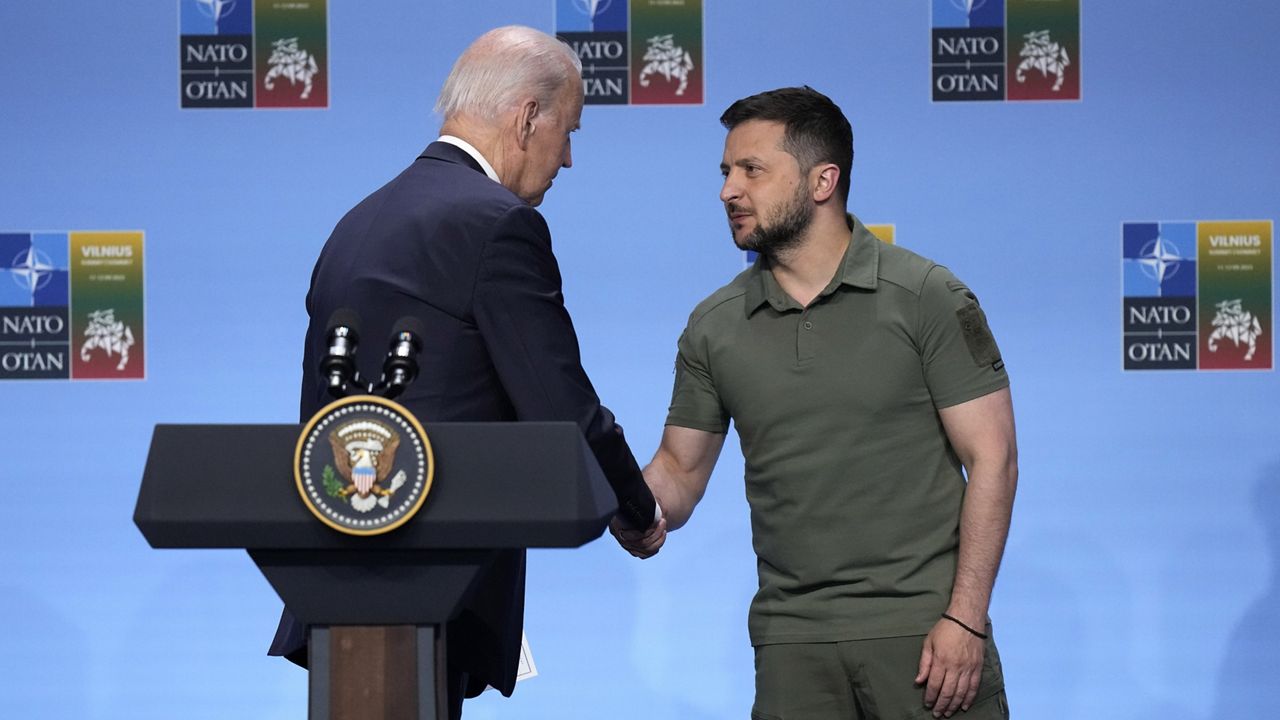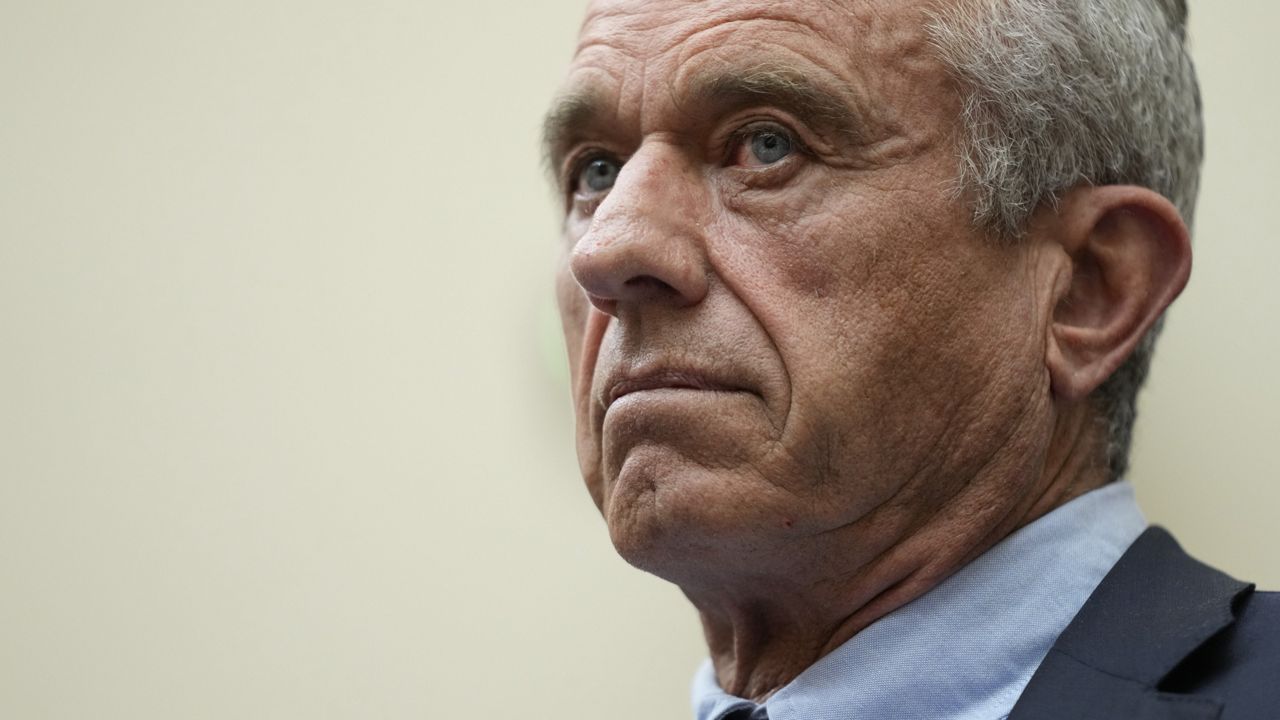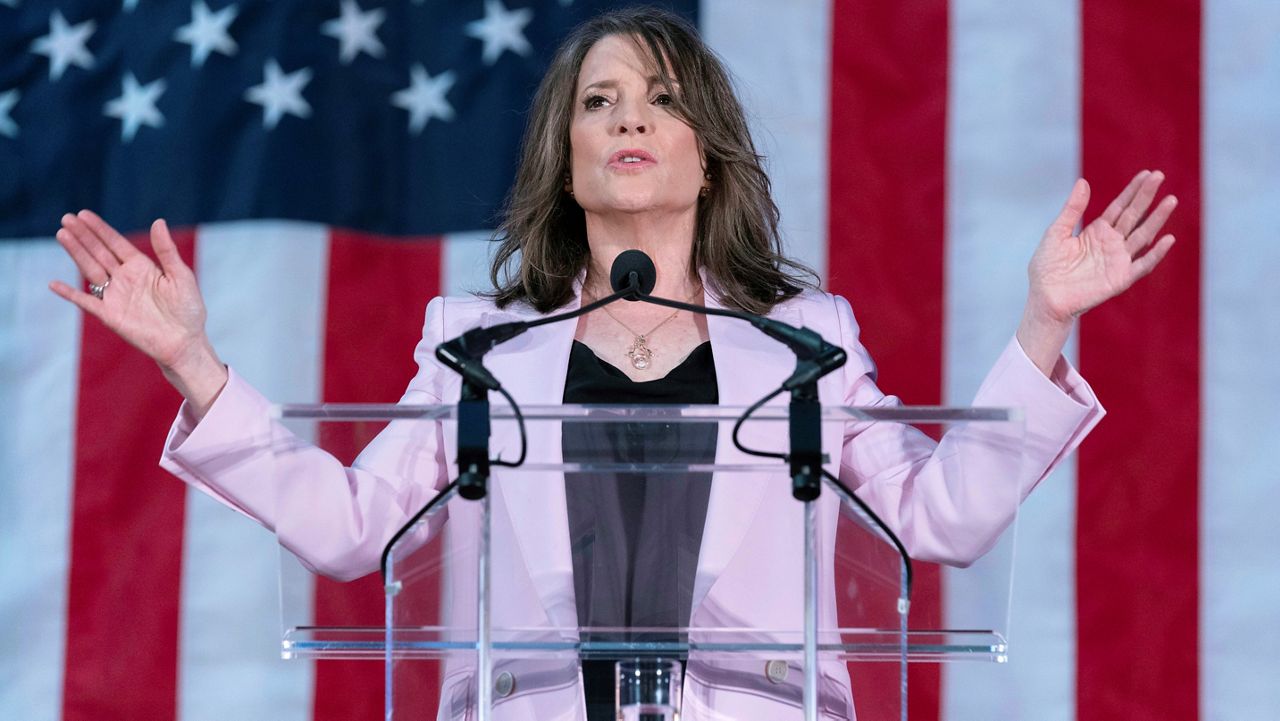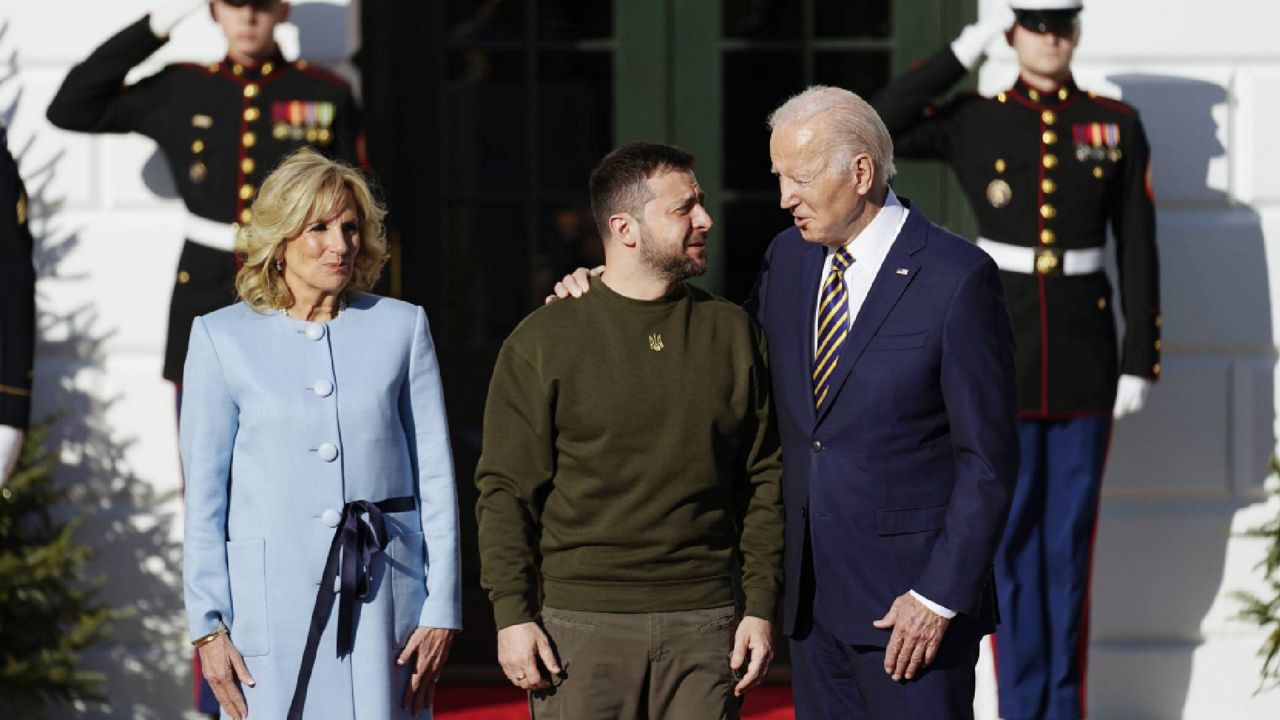It’s been almost 18 months since Russia invaded Ukraine, costing tens of thousands of lives on both sides of the conflict and billions of dollars from the United States and its Western allies.
While a majority of Americans continue to support providing additional economic and military aid to Ukraine as it wages a grueling counteroffensive, continued Congressional support is tenuous.
With 15 months to go until Election Day, we look at where the Democratic presidential candidates stand on the issue.
The latest New York Times/Siena College poll showed President Joe Biden leading among the Democratic presidential candidates with 64% of likely primary voters. Robert F. Kennedy, Jr. ranked second with 13%. Marianne Williamson placed third with 10%.

President Biden has repeatedly vowed to support Ukraine for “as long as it takes.” Since February 2022, when Russia first invaded Ukraine in what Biden has called “an unprovoked war,” the Biden Administration and Congress have directed $75 billion in aid to Ukraine, including military, financial and humanitarian support, according to the Kiel Institute for the World Economy.
The United States is leading a coalition of more than 50 nations to provide weapons and supplies to Ukraine. In July, the Pentagon said it would provide air-defense missile systems, artillery shells, anti-tank missiles and land-mine clearing equipment. It also began supplying cluster bombs, despite NATO opposition, but the Biden Administration has drawn the line at sending F-16 fighter jets.
In July, during a NATO summit in Lithuania, President Biden said he did not support Ukraine’s membership in the group until after the war with Russia has ended.
“We have to lay out a rational path for Ukraine to be able to qualify to be able to get into NATO,” Biden told CNN last month. He added that before the invasion of Ukraine, Russian President Vladimir Putin had demanded Ukraine not be admitted to NATO, but Biden refused.
“President Putin chose this war,” Biden said during a visit to Poland in February, one year after the conflict began. “Every day that the war continues is his choice. He could end the war with a word. It’s simple. If Russia stopped invading Ukraine, it would end the war.”

Robert F. Kennedy, Jr. said he plans to revive “the peace that almost was,” according to a statement the Kennedy 2024 campaign issued Monday.
He said, “I will negotiate in good faith and propose that Russia pull out of the territory it has seized in eastern Ukraine. UN peacekeepers will ensure the safety of ethnic Russians there and maintain order so that people can rebuild. In return, I will remove Aegis missile systems from Russia’s borders and pull NATO troops out of the region.”
Kennedy cited former U.S. National Security Council official Fiona Hill and former Israeli Prime Minister Naftali Bennett as saying that Ukraine and Russia had agreed to a negotiated peace in March 2022, shortly after Russia invaded Ukraine.
The campaign statement said Russia had pledged to retreat to pre-invasion lines, and Ukraine pledged not to join NATO in exchange for security guarantees from Western countries. The deal didn’t go through because of interference from Washington and London, who were both seeking to exhaust Russia’s military, according to the Kennedy campaign.

Part of the spiritual author’s campaign platform is establishing a Department of Peace within the U.S. government.
“Ending the scourge of violence in the United States and across the planet requires more than suppressing violence,” according to her campaign’s web site. “Lasting peace requires its active and systematized cultivation at every level of government and society.”
Domestically and internationally, Williamson is calling for a dramatic ramping up of “the use of proven powers of peace-building, including dialogue, mediation, conflict resolution [and] economic and social development.”
Williamson’s campaign does not take a stance on Ukraine, per se, but in March, during an interview with ABC News, Williamson said she supported President Biden’s basic policy toward Ukraine as “careful."
"While I do not support all of the rhetoric of the president ... regarding this war, for the most part, I support that policy," Williamson said on ABC's "This Week" in March.
“If we were to withdraw military support from Ukraine right now, there would be no Ukraine,” she said. “That is not acceptable to me.”
She went on to say, “What the United States needs to stand for in every situation is negotiation and diplomacy,” though she acknowledged it was not possible to negotiate with Putin because he feels he’s winning the war.
She cited the RAND Corporation and Chairman of the Joint Chiefs of Staff General Mark A. Milley as saying the war will end with negotiation. “The only question now is at what point is that possible in a way that supports Ukraine the most.”
In July, Williamson weighed in on the Biden Administration’s decision to supply Ukraine with cluster boms, writing, it’s “a terrible idea. An inhumane decision. Even in the midst of war, we must hold onto our humanity.”



